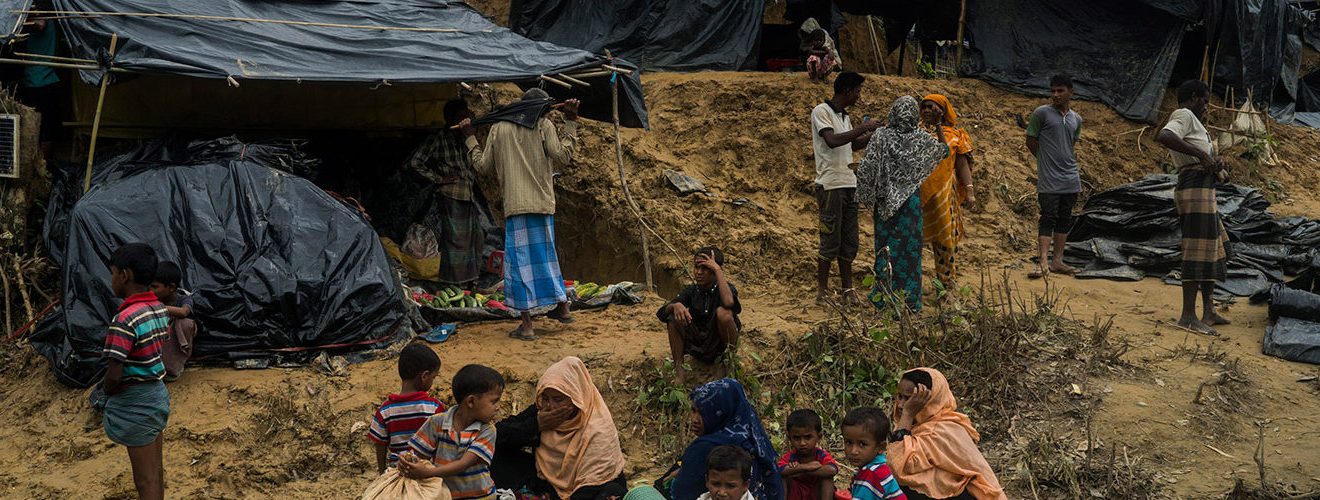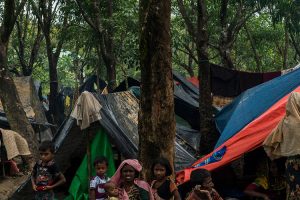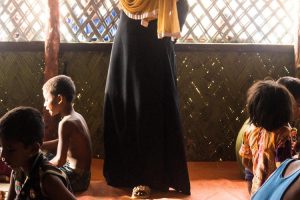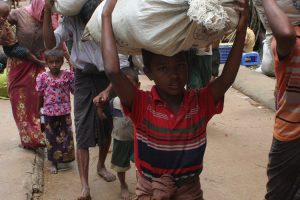The World Health Organisation said on Friday, September 15, that it is taking steps to prepare for possible outbreaks of infectious diseases, including cholera, while the UN Refugee Agency said many Rohingya refugees have received “little meaningful help.”
Almost 400,000 Rohingya people have fled from Myanamar since August 25, when the Arakan Rohingya Salvation Army militant group attacked 30 police outposts in Rakhine state, sparking a government crackdown and widespread violence. UN High Commissioner for Human Rights Zeid Ra’ad Al Hussein said on Monday that he government response seemed “a textbook example of ethnic cleansing,” an assessment not disputed by UN Secretary General António Guterres on Wednesday.
The WHO said in a briefing that it has deployed staff and will launch a vaccination campaign against measles and polio to cover 150,000 newly arrived children aged six months to 15 years old.
WHO will distribute emergency medical kits that cover 100,000 people in coming days, along with cholera kits for 20,000 people and 2 million water purification tablets, while its water and sanitation experts are being mobilized for deployment.
UNHCR delivers aid
Meanwhile, a United Nations High Commission for Refugees spokesperson said on Friday that aid is arriving in the Cox’s Bazar area.
“Deliveries of more UNHCR aid – flown in earlier this week – are currently underway. The first 15 of 35 scheduled trucks have arrived in Cox’s Bazar today and aid is being delivered to Kutupalong and Nayapara camps and other sites in south-eastern Bangladesh,” the spokesperson said.
Shelter materials are UNHCR’s priority. “Thousands of new arrivals are struggling to find even rudimentary protection from the elements. Many Rohingya refugee families are sleeping rough on roadsides and riverbanks,” the spokesperson said. “Outside of the two established camps – already substantially overflowing – many people have received little meaningful help to date.”
Latest ICSG report
The latest report from the multi-agency Inter Sector Coordination Group led by the UN’s International Organisation for Migration which was published on Friday said that on Thursday, 391,000 people had fled to the Cox’s Bazar area of Bangladesh since August 25, bringing the total number of refugees from Myanmar in the area to 588,579, but stressed that “fluid movement makes the tracking of new arrivals challenging.”
The previous day’s report said the majority were in makeshift camps, but that “significant numbers of new arrivals are still seen residing at the side of the roads.”
ICSG says the Bangladesh Department of Immigration and Passports began a registration process for refugees on since September 11, and that local officials “are expected to collect biometric data at 12 registration points. Person’s name, gender, age, photo, birthplace, nationality, country and religion will be recorded. An ID card will be provided upon registration.”
One Rohingya Twitter user posted an image of the identity document, which states the nationality as “Rohingya,” rather than “Burmese.” Grasswire could not verify the image.
Biometric #Rohingya refugee registration card – Nationality – Rohingya, Place of Birth – #Myanmar pic.twitter.com/0fxkl9l4Pn
— Ro Nay San Lwin (@nslwin) September 14, 2017
Cholera
Cholera is caused by the Vibrio cholerae bacterium. It is contracted through faecally contaminated food or water.
In its most severe form, it is chacterised by a sudden onset of acute watery diarrhoea.
Around 75% of people infected will have no or mild symptoms but, in severe cases, the disease can rapidly lead to severe dehydration and death if left untreated.
Up to 80% of patients can be treated simply and cheaply through the administration of oral rehydration salts.
Antibiotics can reduce the volume of diarrhoea, reduce the volume of rehydration fluids needed, and shorten the duration of illness. The World Health Organisation WHO recommends antibiotics only in cases of severe dehydration.
Safe water, proper sanitation, and food safety are critical for preventing cholera.
https://kneecap.srepetsk.net/2017/11/22/myanmar-humanitarian-situation-is-catastrophic-un-secretary-general-says/







